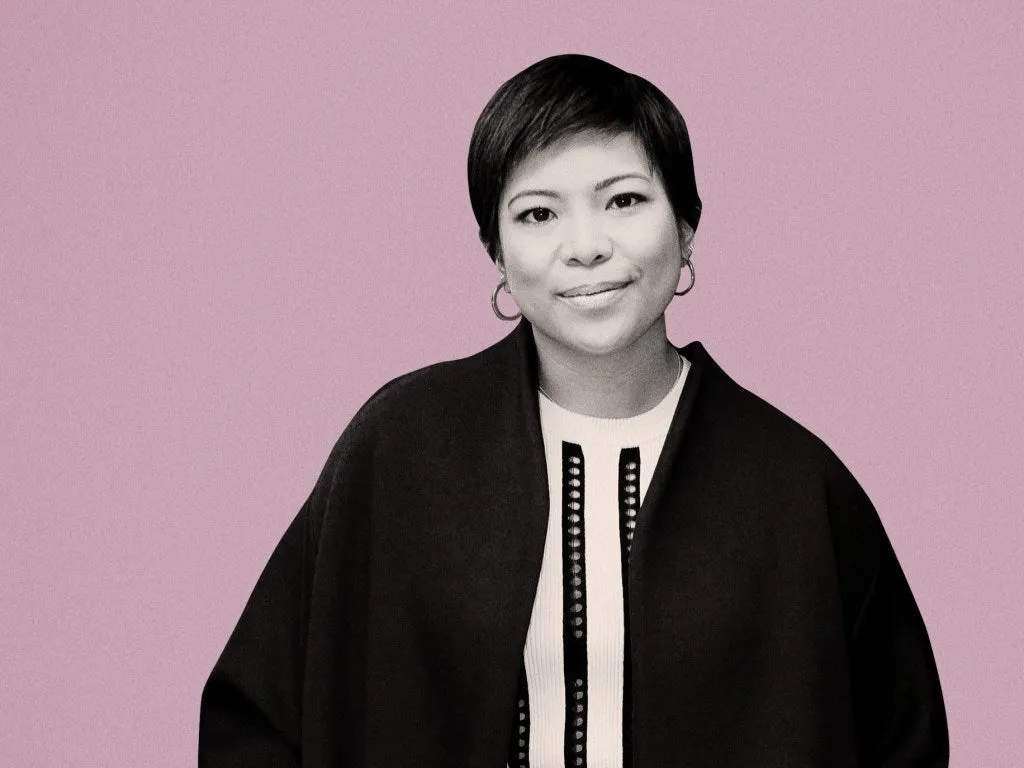Top 11+ Female Founders & Their Startups (2025)

Did you know that startups led by women entrepreneurs generate 78 cents for every dollar of funding, while male-led startups produce only 31 cents?
Despite this, female founders still receive only a fraction of global venture capital funding.
So, who are the women startup founders challenging these statistics and transforming industries?
In this article, we’ll spotlight some of the most successful and forward-thinking startups led by women — showcasing how the future of business is being redefined.
The Rise of Women Entrepreneurs in Startups
Over the last 20 years, the number of women entrepreneurs has grown dramatically.
From 2001 to 2005, the global female startup activity rate averaged 6.1%. Between 2021 and 2023, this figure increased to 10.4% across 30 countries, proving the rising influence of women in startups.
In the U.S., women business ownership has surged. In 2019, 29% of new entrepreneurs were women. By 2023, that number grew to 49%, signaling significant progress.
Still, challenges remain. Only around 20% of startups worldwide have at least one female founder. And in funding terms, they’ve received just $5 billion in venture capital — a fraction of the total.
Yet, successful female entrepreneurs are proving that ambition, resilience, and innovation can break barriers.
Consider Bumble, created by female business owner Whitney Wolfe Herd in 2014. It’s now a top dating app with a women-first approach. Across Europe, over 35 unicorn startups have been founded by women — nearly equal to the continent’s entire unicorn count in 2013.
These achievements illustrate the progress made and the ongoing need for equity in entrepreneurship.
Challenges Faced by Female Startup Founders

Also Read: Glossier: The Rise, Evolution & Vision of a Beauty Pioneer
1. Limited Access to Funding
Women startup founders still receive a small slice of VC funding. This lack of access slows growth and innovation for many promising women-led businesses.
2. Gender-Based Investor Bias
Investors often ask women about risks, while they question men about growth. This bias adds another layer of difficulty for female entrepreneurs during fundraising.
3. Weak Networking Channels
Many industries lack accessible mentorship and networks for women, limiting their access to investors, advisors, and peers who can support them.
4. Work-Life Pressures
Balancing business and personal life remains a big hurdle. Women often carry more family responsibilities, which can challenge the time and energy needed to run a startup.
5. Lack of Role Models
Without seeing female business owners in top roles, many women hesitate to pursue entrepreneurship. Representation matters in building confidence and ambition.
Still, many female founders are changing the narrative — building billion-dollar businesses and opening doors for future generations.
Top 11 Female-Founded Startups to Watch in 2025
1. Glossier – Emily Weiss

Glossier reinvented beauty by going digital-first. Starting as a blog, Weiss built a loyal community before launching her brand. Glossier is known for minimalist skincare, viral products like Boy Brow, and direct-to-consumer success.
- Founded: 2014
- Valuation: $1.2B (2019)
- Achievement: Among the first DTC beauty unicorns
2. Rent the Runway – Jennifer Hyman & Jennifer Fleiss

Rent the Runway lets users rent designer fashion — promoting accessibility and sustainability. Its model changed the way consumers view high-end fashion.
- Founded: 2009
- Valuation: $1.7B at IPO (2021)
- Achievement: Pioneered clothing rental at scale
Also Read: Why These 4 Women-Run Companies Deserve a Spot in Your Portfolio?
3. Away – Jen Rubio

Founded by female entrepreneurs Jen Rubio and Steph Korey, Away elevated luggage design. With sleek products and DTC strategy, Away reshaped the travel industry.
- Founded: 2015
- Valuation: $1.4B (2019)
- Achievement: Reached profitability by 2017
4. Airwallex – Lucy Liu

Airwallex provides businesses with seamless international financial services. Co-founder Lucy Liu turned the startup into a fintech leader, partnering with McLaren Racing in 2024.
- Founded: 2015
- Valuation: Targeting $6B (2024)
- Achievement: Recognized for fintech innovation
5. Mammoth Biosciences – Janice Chen

Championing CRISPR-Based Innovation
Mammoth Biosciences, co-founded by Janice Chen, is at the forefront of biotech, specializing in CRISPR-powered diagnostic and therapeutic technologies.
The company utilizes compact CRISPR systems to build curative therapies and scalable precision diagnostics that could revolutionize medicine.
Founded in partnership with CRISPR pioneer Jennifer Doudna, along with Trevor Martin and Lucas Harrington, Mammoth aims to unlock the full potential of gene-editing science.
Year Founded
2017
Valuation
Mammoth reached a valuation above $1 billion in 2021 after a $150 million Series D round led by Redmile Group.
Key Milestone
In April 2024, Mammoth partnered with Regeneron Pharmaceuticals to develop CRISPR-based gene-editing therapies. The agreement involved a $100M upfront payment and up to $370M in milestone payments per target, affirming Mammoth’s scientific credibility.
Also Read: Tales from a Female-Led Startup: Why We Needed a Man to Look Legit?
6. Canva – Melanie Perkins

Design Made for Everyone
Canva, led by one of the most well-known women startup founders, Melanie Perkins, is an online design platform that’s reshaped the visual content industry.
Since its 2013 launch with co-founders Cliff Obrecht and Cameron Adams, Canva empowers users to craft presentations, graphics, and social media visuals easily.
With a drag-and-drop interface and an expansive template library, Canva has democratized design for individual creators and large teams.
Year Founded
2013
Valuation
As of 2024, Canva’s value nears $50 billion—reflecting phenomenal market adoption.
Key Milestone
Boasting over 200 million monthly active users, Canva’s growth trajectory continues. In 2024, it acquired Leonardo.ai, an AI-powered design platform, and expanded its services to accommodate a broader creative audience.
7. Bumble – Whitney Wolfe Herd

Women Making the First Move
Bumble redefined online connection by placing women at the center of engagement. Founded by female business owner Whitney Wolfe Herd in 2014, the app gives women control in dating, networking, and friendship.
The platform also introduced Bumble BFF and Bumble Bizz—services that build meaningful non-romantic connections.
Year Founded
2014
Valuation
Bumble hit a $13 billion valuation in 2021 after going public. Though it adjusted to $6 billion in 2022, it remains a force in the social app space.
Key Milestone
In 2024, Bumble posted $1.0716B in annual revenue, with the app alone contributing $866.3M, marking steady year-over-year growth.
8. Partiful – Shreya Murthy

Reinventing Modern Party Planning
Partiful, led by female founder Shreya Murthy, is reshaping how we plan events—from intimate dinners to large parties.
The platform streamlines invitation creation, RSVP management, and event coordination, making real-world socializing easy and enjoyable.
Year Founded
2020
Valuation
Valued at $120M in 2022 after a $20M round led by Andreessen Horowitz, Partiful rose to a $400M valuation by the end of 2024.
Key Milestone
In 2024, Partiful launched mobile apps for iOS and Android and was recognized as Google’s “Best App of the Year.”
Also Read: How Women Get Ahead in Male-Dominated Tech Fields
9. Little Otter – Rebecca & Dr. Helen Egger

Revolutionizing Pediatric Mental Health
Little Otter is a family mental health startup co-founded by mother-daughter duo Dr. Helen Egger and Rebecca Egger, successful female entrepreneurs with a mission to offer digital mental healthcare to children and families.
It offers therapy, psychiatry, and coaching via a virtual care model tailored to each family’s needs.
Year Founded
2020
Valuation
While exact valuation figures are private, Little Otter raised $36.35M, including $9.5M in February 2025.
Key Milestone
In 2025, Little Otter secured $9.5M in strategic funding to expand care under Medicaid and insurance. The company is also enhancing its AI-powered triage tools to improve care delivery.
10. Elvie – Tania Boler

Empowering Women Through Femtech
Founded by female business leader Tania Boler, Elvie is a UK-based femtech brand redefining women’s health tech.
From the Elvie Trainer (a pelvic floor exercise device) to the Elvie Pump (a silent wearable breast pump), Elvie’s products help women manage intimate health with dignity and technology.
Year Founded
2013
Valuation
In 2024, Elvie reached a £290 million valuation after raising £9.6 million.
Key Milestone
Elvie grew its revenue from £37M (2020) to £78M (2022), highlighting consumer demand for tech-first women’s wellness solutions.
11. Blueland – Sarah Paiji Yoo

Sustainable Cleaning with Purpose
Blueland, created by female founder Sarah Paiji Yoo, eliminates plastic waste in household products.
By offering refillable cleaning items via dissolvable tablets and reusable bottles, Blueland empowers eco-conscious living.
Year Founded
2018
Valuation
As of 2022, Blueland secured $35.1M in funding, including a $20M Series B.
Key Milestone
Blueland became profitable in 2022, showcasing how women entrepreneurs can build purpose-driven, high-performance businesses.
Also Read: Mikaila Ulmer: The Young Social Entrepreneur Who Is Making a Difference
Why Women Entrepreneurs Deserve Greater Investment
1. Better ROI and Business Performance
Studies by BCG show that female-founded startups deliver more revenue per dollar invested. Yet, funding remains skewed toward male founders.
2. Supportive VC Firms & Corporate Initiatives
Initiatives like the Female Founders Fund, All Raise, and Google’s women-focused funds are beginning to close the investment gap for female founders.
3. More Women in VC Means More Diverse Investments
Only 15% of decision-makers at VC firms are women. More women in VC roles could rebalance funding and open new opportunities for women startup founders.
The Future of Women Entrepreneurs

1. Trends to Watch in 2025
From healthtech to fintech, women entrepreneurs are disrupting high-growth sectors. Support from public and private institutions is accelerating the shift toward gender equity.
2. Tips for Aspiring Female Founders
- Join female founder communities
- Seek out women-focused accelerators
- Build strong mentorship networks
- Stay persistent through rejection
3. Everyone Has a Role to Play
- Investors: Fund more female founders
- Consumers: Support women-led brands
- Governments: Offer inclusive funding programs
By supporting female business owners, we’re not just encouraging fairness—we’re fueling innovation.
AI Application Overview
Several startups above, including Canva and Little Otter, integrate AI to boost efficiency and personalization. Canva uses AI-powered image tools and design assistants, while Little Otter enhances patient triage through AI diagnostics. These implementations reflect how successful female entrepreneurs are harnessing AI to scale, customize, and improve user experiences across industries.
FAQs
1. Why Do Women Entrepreneurs Receive Less Funding Than Men?
Investor bias, risk perception, and limited access to networks are major contributors.
2. What Industries Are Most Popular Among Women Startup Founders?
Beauty, fashion, fintech, wellness, and DTC (direct-to-consumer) are among the top.
3. How Can We Support Female Business Owners?
By offering mentorship, equitable funding opportunities, and inclusive networking platforms.
4. Which Female-Founded Startup Reached Unicorn Status First?
Glossier was one of the first DTC beauty brands founded by a woman to achieve unicorn status.
5. What Role Does Ai Play In Female-Led Startups?
AI is helping optimize operations, personalize customer experience, and drive smart decision-making.









